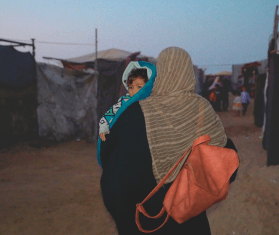New York, NY, October 31, 2007 - In a study published today in the inaugural issue of PLoS Neglected Tropical Diseases, Doctors Without Borders/Médecins Sans Frontières (MSF) medical teams detail a dramatic increase in visceral leishmaniasis, also known as kala azar, in the Bakool region of south-central Somalia. The current conflict in Somalia and the lack of health infrastructure makes it both difficult to address the problem and to assess the true magnitude of the impact of the disease.
The study analyzes data from 1,671 patients with kala azar treated by MSF from January 2002 through December 2006, and shows an alarming seven-fold increase in admissions at the Huddur health center in Bakool for 2006. Mostly unheard of in the developed world, leishmaniasis is a major health threat in many poor countries, with an estimated 2 million new cases each year (500,000 of which are the most severe form of visceral leishmaniasis). The disease is transmitted by sand flies and causes prolonged fever, weight loss, anemia, and enlargement of the liver and spleen. Unfortunately, there has been little research and development investment for kala azar and other diseases that affect millions of people in developing countries.
PLoS Neglected Tropical Diseases is the first open-access, peer-reviewed journal devoted to research pertaining to kala azar, Chagas disease, human African trypanosomiasis (also known as sleeping sickness), Buruli's ulcer, and other neglected diseases. PLoS, the Public Library of Science, is a non-profit organization of scientists and physicians which works to make scientific and medical literature a freely available public resource.
"We welcome this new initiative from PLoS to encourage urgently needed research and development into new medicines and diagnostic tools to treat neglected diseases such as kala azar that largely affect people living in poor countries," said Nicolas de Torrenté, executive director of Médecins Sans Frontières USA.



